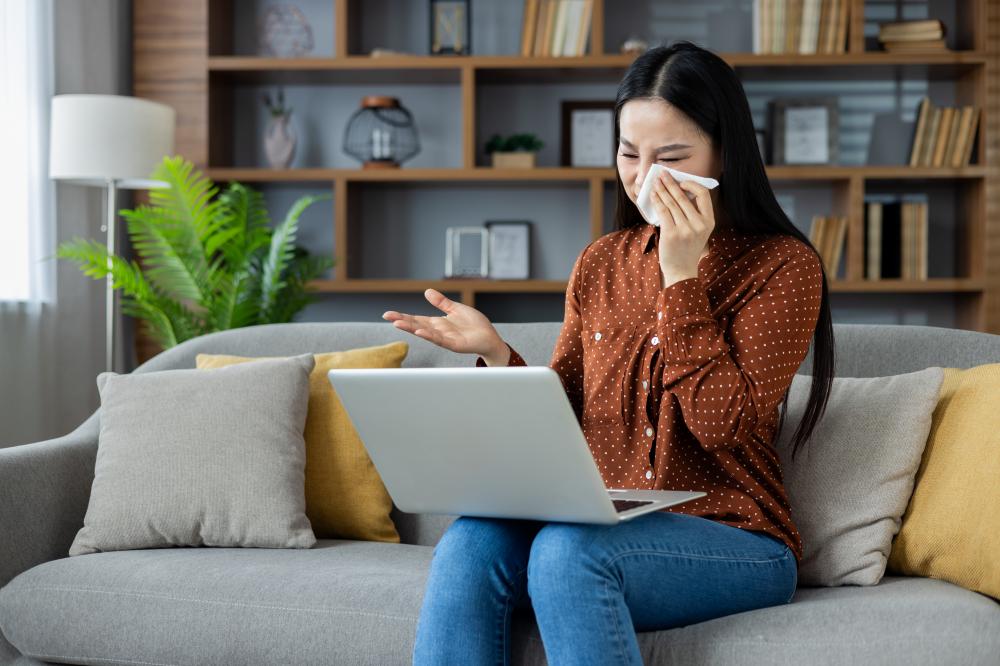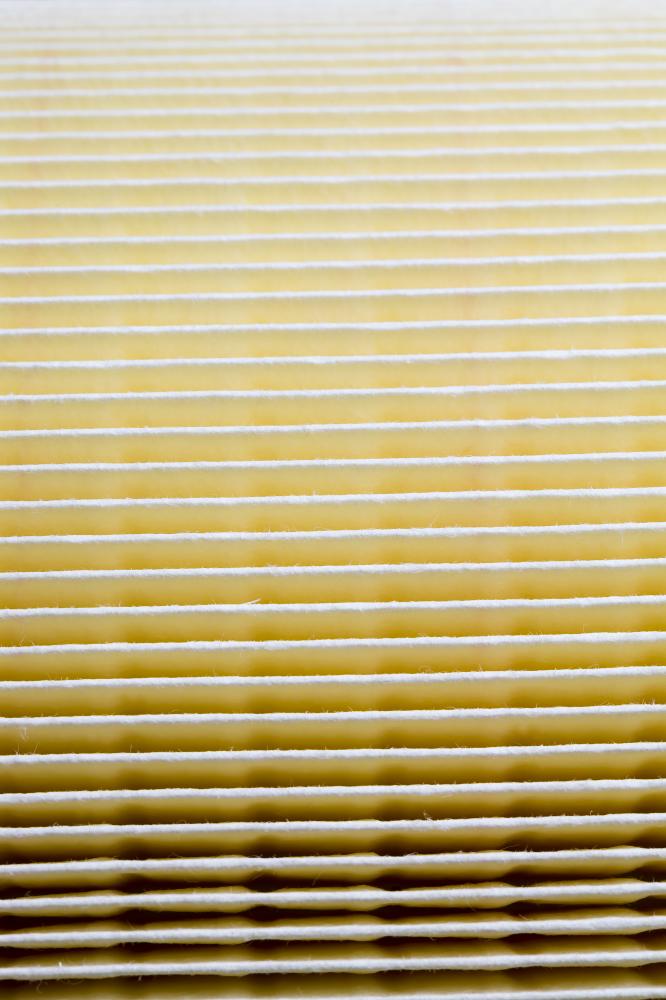
Understanding Allergens and HVAC Systems
In our journey to ensure cleaner indoor air, recognizing how allergens interact with HVAC systems is vital. Allergens such as pollen, dust mites, and pet dander can easily make their way into your home. These tiny particles are often invisible, yet they contribute significantly to indoor air pollution.
Our HVAC systems play a crucial role in regulating indoor air quality. By effectively filtering and circulating air, they help minimize the presence of these allergens. It's essential to optimize your HVAC system to protect your home from allergens using HVAC.
Importance of Regular Maintenance
Regular maintenance is a cornerstone in the battle against allergens. Our team at San Fernando Valley HVAC recommends scheduling maintenance at least twice annually. This routine helps ensure your system is functioning optimally, a crucial step in preventing allergen accumulation.
During maintenance, we thoroughly inspect, clean, and service your HVAC units. We target critical areas like air filters, coils, and ducts. By doing so, we help reduce mold growth, dust buildup, and other allergens that might be circulating in your home.
Clean air ducts are key to effective allergen management. Over time, ducts can harbor dust and pollen. Engaging professional duct cleaning services, especially from NADCA-certified technicians like ours, can significantly improve indoor air quality.
By maintaining your HVAC system, you not only extend its lifespan but also enhance your home’s comfort by reducing allergen exposure. It's one of the most efficient ways to protect your home from allergens using HVAC.
Choosing the Right Air Filter
Selecting the appropriate air filter is crucial. High-efficiency filters can capture a wide range of allergens. The MERV rating, which stands for Minimum Efficiency Reporting Value, is a reliable indicator of a filter’s effectiveness. For most homes, a filter with a MERV rating of 11 or higher provides an excellent balance between allergen removal and airflow maintenance.
Incorporating a HEPA filter can further enhance your protection against allergens. Although slightly more costly, these filters trap even the finest particles. Our expert technicians can guide you in choosing the perfect air filter tailored to your home’s needs.
Utilizing Humidity Control
Controlling humidity levels is another effective strategy. High humidity can promote mold growth, while low humidity can increase dust mite activity. Ideally, indoor humidity should be maintained between 30% and 50%.
Using dehumidifiers alongside your HVAC system can help maintain optimal indoor humidity levels. Our technicians can integrate these devices seamlessly, ensuring you enjoy a comfortable and allergen-reduced environment year-round.
A well-maintained HVAC system, equipped with proper humidity control, can dramatically reduce allergen presence. This holistic approach is integral to how you can protect your home from allergens using HVAC effectively.
We understand the nuances and demands of achieving ideal indoor conditions. That’s why San Fernando Valley HVAC is dedicated to providing solutions that are both practical and accessible for every homeowner in the region.
Personal Experiences with Allergen Control
As a longstanding service provider in San Fernando Valley, we've witnessed firsthand the remarkable improvements our clients experience after implementing targeted HVAC strategies. One client, a long-time allergy sufferer, found significant relief simply by upgrading to a higher MERV-rated filter and scheduling regular maintenance with us.
We've also seen homes transform when air ducts are cleaned professionally. Clients often notice an immediate reduction in allergy symptoms, which underscores the importance of this often-overlooked service. It’s always rewarding to hear feedback about how our interventions have made a tangible difference in clients' daily lives.
Our commitment goes beyond just technical service; we aim to provide peace of mind. By ensuring your HVAC system is optimized, we help create healthier living spaces, showcasing how to protect your home from allergens using HVAC effectively.
We invite you to experience the benefits of a well-maintained HVAC system. Our dedicated team is ready to assist you with your journey toward improved indoor air quality, ensuring your home remains a sanctuary free from allergens.

Understanding Indoor Air Quality
Every day, we breathe thousands of breaths indoors, making Indoor Air Quality an essential aspect of our lives. At San Fernando Valley HVAC, we've seen firsthand how the air we breathe inside can impact our well-being. Understanding Indoor Air Quality isn't just about knowing what's in the air. It involves recognizing how our daily habits, cleaning routines, and even the appliances we use contribute to it.
Our technicians emphasize the importance of routine air duct cleaning. Dust, pollen, and mold spores can accumulate over time, degrading Indoor Air Quality. Clean air ducts mean fewer allergens circulating inside your space. This is especially crucial in areas with significant seasonal changes.
Additionally, proper ventilation systems play a vital role. They ensure that stale indoor air is continuously replaced with fresh outdoor air. Homes in the warmer climates of the San Fernando Valley often require efficient cooling systems that support good air circulation.
Common Pollutants and Their Impact
Several common pollutants can compromise Indoor Air Quality. Household products, like cleaning agents and paints, can release volatile organic compounds (VOCs) into the air. These compounds can cause headaches and eye irritation.
Mold, another frequent culprit, thrives in damp conditions. Basements and bathrooms are typical areas of concern. Regular inspections help identify issues early, preventing larger problems. Our professional services often involve checking these critical areas during routine maintenance.
Carbon monoxide, known as the silent killer, also poses significant risks. It's odorless and invisible, making detection crucial. Our professionals recommend installing carbon monoxide detectors to monitor levels continuously.
Lastly, radon is another gas that often goes unnoticed. It's naturally occurring but can lead to severe health issues over time. Testing for radon is a proactive step in ensuring the safety of your indoor environment.
Improving Indoor Air Quality
Improving Indoor Air Quality doesn’t necessarily require a complete overhaul of your home’s systems. Small changes can make a big difference. Regularly changing air filters is a straightforward way to start. At San Fernando Valley HVAC, we suggest this to all our clients.
For a more comprehensive approach, consider air purifiers. These devices capture contaminants and provide cleaner air. Advanced models can even monitor air quality levels and alert you when it's time to change filters.
Another effective strategy is ensuring proper humidity levels. Both high and low humidity can affect Indoor Air Quality. Humidifiers and dehumidifiers help maintain a balance, which is vital for comfort and health.
Lastly, addressing sources of pollution, such as smoking indoors or using unvented appliances, can improve the overall air quality significantly. Making these lifestyle adjustments aligns with our commitment to ensuring your home remains a healthy space.
The Role of Professional Services
Professional services play a crucial role in maintaining Indoor Air Quality. At our company, the expertise of our NADCA-certified technicians ensures thorough inspections and maintenance. We specialize in identifying subtle issues that can easily be overlooked and escalate if left unchecked.
We prioritize comprehensive HVAC system checks. From air conditioners to heaters, each component plays a part in regulating air quality. Our technicians provide assessments and recommend adjustments as needed, ensuring systems run efficiently and safely.
Real-Life Experiences with IAQ
Our journey with Indoor Air Quality has been enriched by countless experiences. Clients often share how improvements in air quality have led to fewer allergies and general health improvements. Their stories emphasize the importance of ongoing attention to air quality in homes.
One memorable case involved a client experiencing unexplained respiratory issues. After an air quality assessment, we discovered poor ventilation was a major factor. Implementing a new ventilation system resolved their issues, significantly enhancing their quality of life.
Importance of HVAC Filter Maintenance
Keeping up with HVAC Filter Maintenance ensures that your system runs efficiently. Regular attention to your filters prevents dust and debris buildup. This allows for optimal airflow throughout your home. We have seen firsthand how a clean filter can significantly improve air quality.
HVAC Filter Maintenance is crucial not just for efficiency but also for your health. Dirty filters compromise air quality, raising concerns especially for those with allergies. You'll notice that cleaner air leads to fewer respiratory issues. Regular maintenance is a small commitment with substantial benefits.
Step-by-Step Filter Cleaning
Turning Off the SystemFirst, safety is paramount. Always turn off your HVAC unit before beginning any work. This step is essential for preventing any accidents.
Locating and Removing the FilterNext, find the filter within your unit. Some systems may have more than one filter, so be thorough. Once located, carefully remove the filter to avoid scattering dust.
Cleaning the FilterBegin by vacuuming the filter to remove surface debris. For a deeper clean, soak it in a solution of vinegar and water. This helps eliminate any stubborn grime. Rinse it thoroughly and let it dry before reinserting.
Types of HVAC Filters
Understanding different filter types aids in effective HVAC Filter Maintenance. Basic fiberglass filters are cost-effective but offer minimal air quality improvement. We recommend them for those primarily concerned with protecting their system from dust.
Pleated filters are a better option for those looking to trap more pollutants. They offer a larger surface area and are more efficient. Electrostatic filters employ a unique charge to capture particles and are often reusable.
HEPA filters are the top choice for those with significant health concerns. These filters remove up to 99.7% of contaminants, offering superior air quality. However, they are often the most expensive option.
Consequences of Neglecting Filter Maintenance
Skipping HVAC Filter Maintenance can lead to serious issues. One of the most immediate problems is reduced air quality, which can aggravate allergies or asthma. We’ve seen homes suffer from increased dust and potential mold growth due to neglected filters.
Additionally, a dirty filter forces your HVAC system to work harder. This not only raises your energy bills but also shortens the lifespan of your unit. Over time, neglect may lead to costly repairs or even complete system failure.
Lastly, inefficient filters can significantly lower your system's effectiveness. A struggling unit won't heat or cool your home effectively, leading to discomfort. Addressing HVAC Filter Maintenance regularly is essential for a comfortable and safe living environment.

Do HVAC filters help with allergies?
As a seasoned HVAC service provider, I can confidently say that HVAC filters play a significant role in alleviating allergy symptoms. The right HVAC filter can capture allergens such as pollen, dust mites, and pet dander, which are common culprits of allergy flare-ups. Selecting a filter with a high MERV rating, typically 11 or higher, ensures it’s efficient at trapping these particles without hindering airflow. HEPA filters, in particular, are excellent at capturing even the minutest particles, providing a cleaner indoor atmosphere. However, it's essential to choose a filter that suits your system and your specific needs. Have you considered upgrading to a high-efficiency filter to enhance your home's air quality?
Does running HVAC fan help with allergies?
Running your HVAC fan can indeed help with allergies, especially if your system is equipped with a good air filtration system. By keeping the fan on, air circulates continuously through the filters, capturing allergens more effectively. However, it's crucial to balance continuous fan operation with energy efficiency. In some cases, running the fan can increase electricity use, but modern systems often have settings that help manage energy consumption. For those with severe allergies, this could be a worthwhile trade-off. Have you tried adjusting your system settings to find the best balance between air quality and energy use?
How can I prevent allergies from air conditioner?
Preventing allergies from an air conditioner involves regular maintenance and optimizing your HVAC setup. Start by keeping the unit clean; dust and debris can accumulate over time, acting as a breeding ground for allergens. Regularly changing air filters—every three months or more frequently if you have pets or live in a dusty area—ensures that the system continues to filter allergens effectively. Additionally, ensure that your system is appropriately sized and installed; an oversized unit may not dehumidify air properly, leading to mold growth. Have you scheduled your next HVAC maintenance check to keep your system in top condition?
How to allergy proof your home?
To allergy-proof your home, start by focusing on your HVAC system, as it is central to maintaining clean air. Regular maintenance, such as cleaning air ducts and replacing filters, is essential. Furthermore, consider using a dehumidifier to maintain indoor humidity levels between 30% and 50%, as this range discourages mold growth and dust mite proliferation. It can also be beneficial to use hypoallergenic bedding and reduce clutter where dust can collect. And don’t forget to vacuum carpets and upholstery regularly. These combined efforts can significantly reduce allergens in your home. Have you assessed your home for potential allergen hotspots recently?
How to Protect Your Home from Allergens Using HVAC
Protecting your home from allergens with HVAC involves a strategic approach that combines regular maintenance, proper filtration, and air quality control. Our experience at San Fernando Valley HVAC shows that consistent upkeep—twice a year—is key to preventing allergen buildup. This includes cleaning and inspecting air ducts, coils, and replacing filters. We recommend filters with a MERV rating of 11 or higher for optimal allergen capture, and HEPA filters for those needing more robust solutions.
Humidity control is another critical factor. Mold and dust mites thrive in improper humidity levels, so maintaining the right balance using dehumidifiers alongside your HVAC system makes a notable difference. Additionally, professional services, such as air duct cleaning and comprehensive system assessments, ensure your HVAC setup is fine-tuned to ward off allergens efficiently.
These steps not only improve your indoor air quality but also extend the life of your HVAC system. Our clients often report significant relief from allergy symptoms after implementing these measures. Does your current HVAC schedule align with these best practices to ensure a healthier home environment?
What are common misconceptions about indoor air quality?
Many people believe that indoor air quality is improved solely through ventilation or use of air fresheners, which is a common misconception. True improvement comes from reducing pollutants at the source and ensuring proper HVAC maintenance. Another misunderstanding is that outdoor air pollution is the primary concern, while indoor environments can be more polluted, especially with common activities like cooking and cleaning contributing allergens and VOCs. It’s crucial to have a comprehensive approach that includes regular filter changes and duct cleaning. Have you considered all the factors that might be affecting your indoor air quality?
Why is HVAC filter maintenance important?
HVAC filter maintenance is crucial for both system efficiency and health reasons. A clean filter ensures optimal airflow, reducing strain on your system, which can prevent breakdowns and extend the system’s lifespan. From a health perspective, clean filters trap allergens and prevent them from circulating throughout your home. In our experience at San Fernando Valley HVAC, clients who stick to a regular filter maintenance schedule often report improved air quality and fewer allergy-related issues. Are you up to date with your filter maintenance to ensure your HVAC system is running at its best?
Types of HVAC filters and their benefits
Various HVAC filters cater to different needs, each offering unique benefits. Fiberglass filters are cost-effective but provide minimal air quality improvement, suitable primarily for protecting the system from large particles. Pleated filters, with their larger surface area, capture more allergens and are a step up for those concerned with air quality. Electrostatic filters use static electricity to trap particles and are reusable, making them environmentally friendly. HEPA filters, the gold standard for capturing over 99.7% of contaminants, are ideal for those with severe allergies or respiratory conditions. Each type serves a specific purpose, so selecting the right one depends on your priorities. Are you familiar with your current filter type and its benefits?
#### Resources for Allergen Management in HVAC Systems-
Environmental Protection Agency (EPA): The EPA provides extensive guidelines on indoor air quality and allergen control measures. Their resources help homeowners understand how to improve air quality using various strategies.
Visit EPA -
National Institute of Allergy and Infectious Diseases (NIAID): A comprehensive resource on managing allergies, including how HVAC systems can play a role in reducing allergen exposure.
Visit NIAID -
American Lung Association: Offers detailed information on how different air pollutants, including allergens, affect lung health and how to mitigate these through proper HVAC maintenance.
Visit American Lung Association -
National Institutes of Health (NIH): Provides scientific research and health information related to allergies and indoor air quality, with guidelines on preventive measures.
Visit NIH -
Centers for Disease Control and Prevention (CDC): Offers resources and tips on maintaining a healthy indoor environment, highlighting the importance of air filtration and ventilation.
Visit CDC -
National Air Duct Cleaners Association (NADCA): As the standard for HVAC cleaning and maintenance, NADCA provides guidelines and certifications to ensure high-quality air duct servicing.
Visit NADCA
